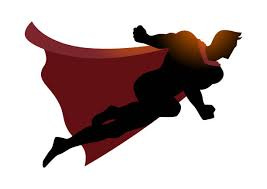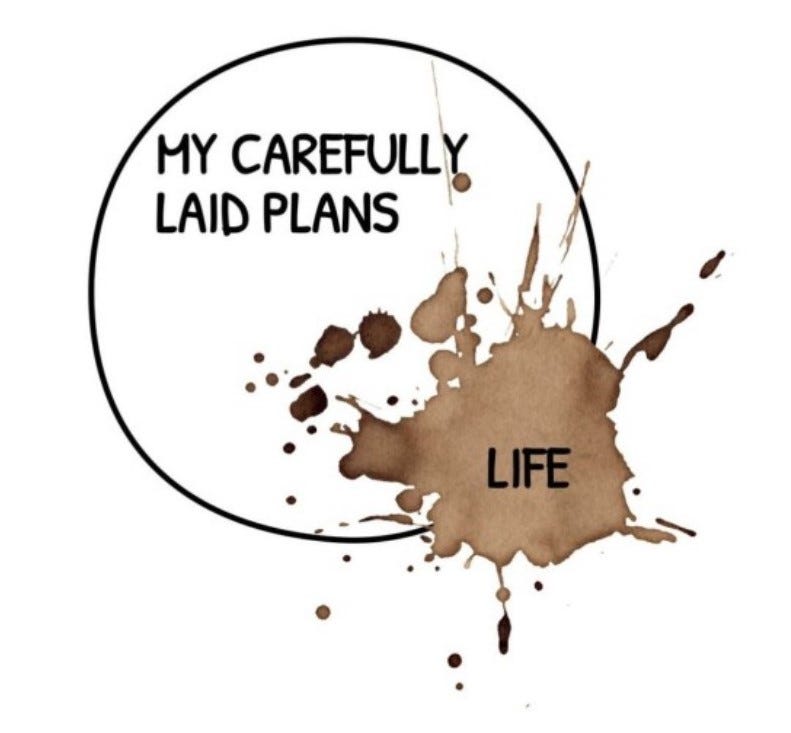Nobody is coming to save you - and it’s incredibly empowering
The buck stops with you, and it's perfectly fine
No one is coming to save you: I've had this sentence floating at the back of my mind for a while. And it has been weirdly liberating.
Then I heard this interview with speaker Smriti Zubin Irani, an Indian politician, who, describing how she was raised, said: "In your darkest hour, you are still your only hope. [...] I love everyone I have in my life [...] but the only person I depend on is me. If you love somebody, you cannot compel them to be your crutch." There are a few other stories like this. I just read about Chris Gardner (remember the movie ‘The Pursuit of Happiness’?), whose mom taught him that the cavalry was never going to arrive: it was up to him. Uplifting, eh? :)
We all want to be saved. Every day, the child in me yearns for someone to come and either solve my problems for me or give me 'key in hand' solutions and, more importantly, a feeling of certainty. I would love that. I don't want to explore, iterate, and get disappointed. I don't want to feel scared and uncertain. On some days, I’m just too jaded for that adulting bs!
You would have noticed that a lot of advertising and service offerings rely on this infantile urge to be saved. A lot of politics too. I fall into this trap all the time. Sometimes I catch myself in conversation with loved ones, hoping that one of them will come up with a ‘fix’ for my life. I discuss my current situation and expect an analysis and solution to my issues, McKinsey style.
Now, let me be clear: the support of my friends and family is beyond invaluable to me. From paradigm-shifting conversations to reassuring directions to explore, or just straightforward help with work and career - and for that, I’m eternally grateful and I appreciate them immensely.
But what I’m talking about here is the expectation that people will provide you a ‘holistic solution to life’ - sadly this one, no one can help with :) And it's a bitter pill to swallow.
I’ve heard of a therapist who said: “At the end of my first session with someone, I know whether I’m dealing with a ‘big kid’ or a ‘small kid’”. If you’ve been around the psychology block, you might have heard of the concept of the ‘inner child’ and how we (or our psyche) encompass all the previous versions of ourselves (child, teenager, early adult etc.). A lot of our triggers are related to these previous versions of ourselves acting up. And managing this is the name of the game.
In any event, my point is that we’re wired to love quick fixes: what protocol should I use? Which career direction should I take if I quit this one? Should I break up or stay with my partner? What should I do now so I don’t feel emotionally uncomfortable? TELL ME!
So here is the deal:
You are the only one who can 'build' what works for you, so you have to do the ‘figuring out’ part. You can ask for counsel, but you must take responsibility for the direction.
It’s okay to not be sure. It’s extremely hard to know what we really want (I talked about mimetic desires last week): hence why iterating is so important. Trying, making mistakes, backing up, being curious etc.
You have to believe that if you carry yourself with some level of integrity and standards and take responsibility for your life, things might not be easier, but you’ll be sturdier, and you’ll cope better. Responsibility is a b*tch. It’s so much nicer to blame our circumstances - the economy, that parent, or that unfair treatment. And I’ve done it and still do it and it feels great, for like a minute, then I have to keep moving and attempt to operate in the world regardless.
There is no right decision: you make a decision and you make it right. The same goes for goals: there are no right goals. There might be goals that are ‘closer’ to what you need, but goals and decisions are here to give us directionality, keep us moving forward, and relieve us from analysis-paralysis. We might still ask ourselves ‘Am I doing the right thing?’. I mean, who knows if you are, you’re trying your best with the limited data available to you. And at least you’re grappling with life, and it’s messy, but it’s admirable.
So, when you finally - even if it's for a brief moment - accept that no one is coming to save you, it's weirdly empowering. The adult in you steps in, and yes, the buck stops with you. And maybe, you have the resourcefulness to contend with it all. Maybe not all at the same time, maybe not every day, but overall, you most probably have what it takes.
Will you make mistakes? Yes. Will it suck? Yes. Will it be hard sometimes? Absolutely.
Nobody is coming to the rescue. No friend, or lover, or coach, or therapist, or YouTube video (lol). They all help tremendously, and some support is vital. (And if you are not used to asking for help, maybe consider starting).
That’s my long-winded way to say: You're the adult now. And if you take on that challenge head-on, you have a shot.
I heard somewhere that the more responsibility you take, the more meaningful life becomes.
I decide to believe it’s true.
Until next time my friends,
Lina






Love this. As always a thought-provoking piece that had me nodding and sighing deeply. The thought at the end about how connected the taking of responsibility is to life having meaning... well, I'll be chewing on that for a while. It does make sense though doesn't it? We all cry out for autonomy but once we have it we go, "no YOU do it". But welcoming the autonomy brings a lot of fulfilment... hmmm, interesting :)